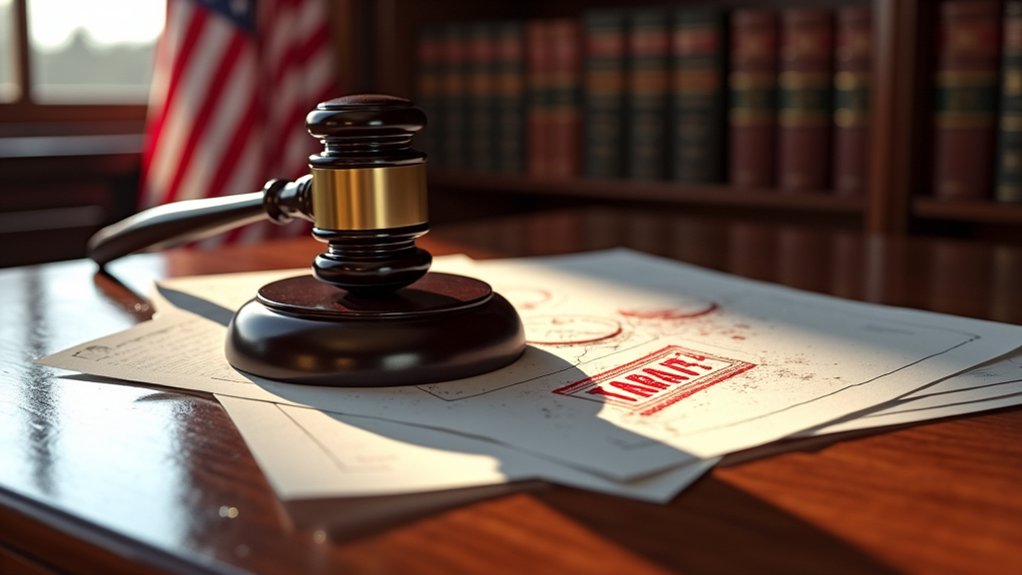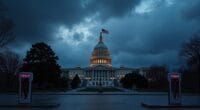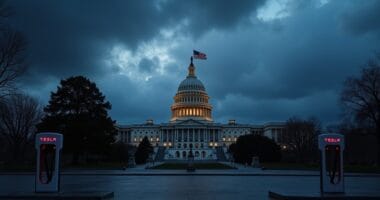The Court of International Trade just crushed Trump’s “Liberation Day” tariffs in a unanimous ruling. Even his own appointed judge wasn’t buying it. The court declared the proposed 10% universal tariffs totally illegal, rejecting claims that trade deficits somehow equal a national emergency. Trump tried using emergency powers meant for actual crises, not trade gripes. The ruling sets clear limits on presidential trade authority – and there’s way more to this story.

While the Trump administration attempted to flex its trade muscles with sweeping new tariffs, a federal court wasn’t having any of it. The Court of International Trade delivered a knockout punch to Trump’s “Liberation Day” tariffs, unanimously declaring them flat-out illegal.
The administration had tried to justify the tariffs using the International Emergency Economic Powers Act of 1977, claiming persistent trade deficits constituted a national emergency. Nice try. The court saw right through that one. The planned tariffs would have slapped a universal 10% rate on all countries starting April 5, 2025, with even higher rates for nations carrying the largest U.S. trade deficits. This move came as the U.S. faced a staggering trade deficit of $1.2 trillion in goods for 2024.
The timing couldn’t have been worse for Team Trump. The ruling dropped just days before the tariffs were set to take effect, throwing a massive wrench into the administration’s trade strategy. Even a Trump-appointed judge joined in the smackdown, making it clear this wasn’t about politics – it was about presidential overreach.
Here’s the kicker: IEEPA was meant for actual emergencies, not as a catch-all tool for whatever trade grievances the president wanted to address. The court made that crystal clear. Trade deficits? Currency manipulation? VAT practices? Not exactly the kind of emergencies Congress had in mind when passing IEEPA. The court specifically pointed to Section 122 of the Trade Act as the proper channel for addressing trade deficit concerns.
The Federal Circuit Court of Appeals did throw the administration a temporary lifeline, granting a stay that keeps the tariffs in place during the appeal process. But the damage was done. The unanimous ruling sent shockwaves through international trade circles and put future administrations on notice about pushing the boundaries of executive trade authority.
For now, major trading partners are watching closely as this legal drama unfolds. The CIT’s decision didn’t just slam the brakes on these particular tariffs – it raised serious questions about presidential power in trade policy. One thing’s certain: this ruling made it clear that even presidents need to play by the rules when it comes to international trade.





